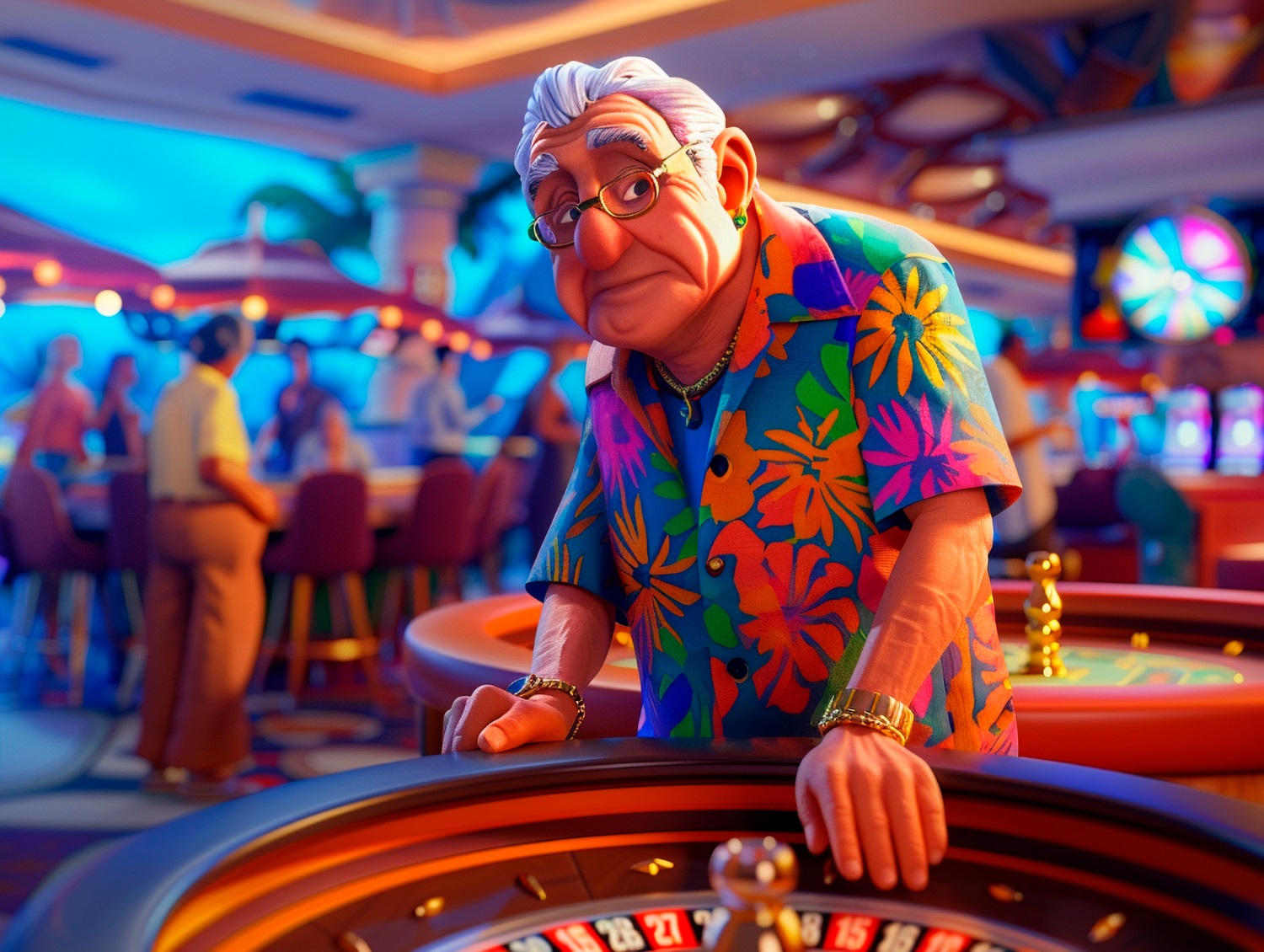Image by wayhomestudio on Freepik
 Every roulette table has one player who believes he’s found the secret. You’ve probably seen him. Notebook in hand. Eyes narrowed in deep concentration. Tracking every spin like a detective unraveling a mystery. For Daniel Myers, a 42-year-old engineer from Manchester, that player was him. He flew to Las Vegas convinced that roulette hot and cold numbers held a hidden pattern. A pattern he could finally decode.
Every roulette table has one player who believes he’s found the secret. You’ve probably seen him. Notebook in hand. Eyes narrowed in deep concentration. Tracking every spin like a detective unraveling a mystery. For Daniel Myers, a 42-year-old engineer from Manchester, that player was him. He flew to Las Vegas convinced that roulette hot and cold numbers held a hidden pattern. A pattern he could finally decode.
Daniel wasn’t reckless. He wasn’t impulsive. He was methodical to the point of obsession. In his daily life, patterns solved everything. They told him how machines behaved, how systems flowed, how problems broke apart into smaller, fixable pieces. So when he read about hot and cold numbers in roulette, something in his brain clicked.
*If machines follow patterns,* he thought, *surely the wheel does too.*
Las Vegas was his testing ground.
The casino he chose was bright, loud, and humming with that familiar roulette energy. Players shouted, dealers smiled, and chips clattered like rain on tile. Daniel found a quiet table early in the afternoon, sat down, pulled out his small notebook, and began writing down each number as the wheel spun.
24.
25.
26.
27.
6 again.
14.
14 again.
His eyebrows lifted. His pen moved faster. The people around him were betting instinctively, casually, letting chance wash over them. But Daniel didn’t see chance. He saw data. Hot numbers forming. Cold numbers refusing to appear. A frequency map emerging in real time.
By the twentieth spin he was certain he’d found something. By the fortieth, he believed he was close to cracking the code. He started placing small bets on the numbers that appeared most often. Wins trickled in. Nothing huge, but enough to encourage him — enough to make him believe the system was bending, slowly, in his favour.
But then something strange happened.
A number that hadn’t shown for nearly an hour hit three times.
A hot number suddenly vanished.
A cold number became hot.
A hot number went cold.
The wheel wasn’t forming a pattern. It was dissolving the one he thought he’d discovered.
Still, he kept writing.
>Still, he kept searching.
>Still, he kept hoping the data would reveal the secret everyone else was too distracted to see.
After nearly two hours, the dealer — a middle-aged man with a kind, slightly amused expression — leaned over during a reshuffle and said quietly, “People have tried to solve the wheel for hundreds of years. If there’s a pattern, it’s doing a great job hiding from all of us.”
He said it gently. Not mocking, not patronizing. Just honest.
Daniel nodded, but inside something cracked a little.
Not disappointment.
Not embarrassment.
Just clarity.
He realized he wasn’t trying to crack the wheel.
He was trying to crack himself.
All year he’d been drowning in problems he couldn’t predict — a shaky job market, a messy breakup, the feeling that the future kept slipping out of his control. Tracking roulette numbers gave him the illusion of order. Writing them down made him feel like the chaos around him could be tamed with enough attention and effort.
But roulette wasn’t a machine he could fix.
And life wasn’t a sequence that could be solved with a notebook.
He placed one last chip on a number he liked — not a hot number, not a cold number, just one that felt right. The wheel spun. The ball dropped. It landed nowhere near his bet.
And he laughed.
Not out of frustration but relief.
A pure, honest release.
He closed his notebook, stood and thanked the dealer. And for the first time in a long time, he walked away without trying to force a result.
Daniel didn’t crack the code that day.
He cracked something better — the belief that uncertainty was a problem to solve instead of a reality to accept.
And in a strange, peaceful way, the roulette wheel finally made sense.
Photo: Freepik


 There’s something hypnotic about a roulette wheel. The spin. The clatter. The rising tension in the half-second before the ball settles. For many players, roulette is more than a game. It’s a symbol of chance itself — raw, unpredictable, and strangely honest. That’s exactly what drew Anthony Rivera to Las Vegas for a much-needed break from real life.
There’s something hypnotic about a roulette wheel. The spin. The clatter. The rising tension in the half-second before the ball settles. For many players, roulette is more than a game. It’s a symbol of chance itself — raw, unpredictable, and strangely honest. That’s exactly what drew Anthony Rivera to Las Vegas for a much-needed break from real life. Roulette is one of the most iconic casino games, known for its fast pace and reliance on luck. But beyond the spinning wheel and anticipation of where the ball will land, there are valuable life lessons hidden within the game. Whether it’s in the way we approach risk, how we handle uncertainty, or the decisions we make under pressure, roulette offers insights that transcend the casino floor. Here are five things that roulette can teach you about life.
Roulette is one of the most iconic casino games, known for its fast pace and reliance on luck. But beyond the spinning wheel and anticipation of where the ball will land, there are valuable life lessons hidden within the game. Whether it’s in the way we approach risk, how we handle uncertainty, or the decisions we make under pressure, roulette offers insights that transcend the casino floor. Here are five things that roulette can teach you about life. In 2004, an extraordinary event at the
In 2004, an extraordinary event at the  The Roselli Brothers, known as Dominick and Vincent Roselli, became infamous in the world of gambling for their audacious and
The Roselli Brothers, known as Dominick and Vincent Roselli, became infamous in the world of gambling for their audacious and 